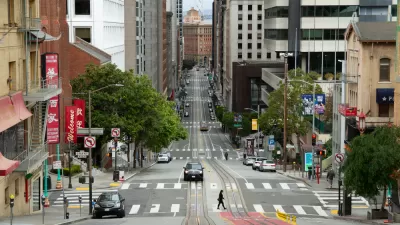Does low-income residents staying put in large metro areas, relative to higher-income groups, mean that low-income households are missing out on affordable housing options? Freddie Mac researchers think so.

Since the beginning of the pandemic, “low-income homebuyers are 25% less likely than moderate- and high-income homebuyers to move out of the top 25 largest metro areas by population,” according to new research by Freddie Mac. Moreover, “those who do move are more likely to move shorter distances.”
The research examined accepted loan applications between from 2018 to 2022, using data from Freddie Mac’s Loan Product Advisor® (LPA), according to a website created by Freddie Mac to share the research.
Among the key findings of the research is an increased pace of moving out of the 25 cities largest metros in the country. “Our analysis of the loan application data suggests that migration out from the top 25 largest metro areas increased for the overall population.”
But, according to the research, “Fewer low-income homebuyers moved out of large metro areas. Moreover, their net migration slowed more sharply after many restrictions related to COVID-19 were lifted or relaxed in March 2022.”
Lower-income movers were also more likely to move to rural areas and less likely to move to mid-sized metro areas, according to the research.
“One possible explanation for the difference in rates of migration between low-income and moderate- and high-income homebuyers is the flexibility of work opportunities for those groups,” according to the article.
Rama Yanamandra, Macro and Housing Economics Manager at Freddie Mac is quoted in the article saying that while many low-income households choose to live in larger metro areas for proximity to jobs, they might be missing out on more affordable housing options in more distant locations. The headline of the article also touts that low-income people are “More Likely to Miss Potential Cost Savings,” due to staying in larger metro areas.
While the research could have been the latest entry in the ongoing “urban exodus” narrative about shifting patterns of American life since the pandemic, Freddie Mac researchers go a step further in implying that equity suffers as a result of the relative lack of migration by low-income households. That framing of course, ignores, willfully or not, the large body of research about the additional costs of moving to suburban and rural communities, generated by increased transportation costs and lack of proximity to essential services and jobs.
Planetizen blogger Todd Litman has written extensively about the unexpected costs of automobile dependency. Here are a few articles written by Litman on the subject from the past five years:
- Unaffordability is a Problem but Sprawl is a Terrible Solution (February 2017)
- Multimodal Transportation for Economic Freedom, Opportunity, and Security (August 2017)
- Houses Appreciate. Cars Depreciate. Walkable Urban Neighborhoods Help Families Build Wealth. (August 2017)
- True Affordability: Critiquing the International Housing Affordability Survey (March 2018)
- Understanding Location-Efficient Affordability Impacts (April 2018)
- Better Planning with More Comprehensive Transportation Cost Analysis (December 2019)
- Automobile Dependency: An Unequal Burden (December 2020)
- The Housing Affordability Recipe (May 2021)Cities and Automobile Dependence: What Have We Learned? (December 2021)
- Study: Lifetime Cost Of Small Car $689,000; Society Subsidizes 40 Percent of This (February 2022)
FULL STORY: Low-Income Homebuyers Are Less Likely to Migrate from Cities, More Likely to Miss Potential Cost Savings

Planetizen Federal Action Tracker
A weekly monitor of how Trump’s orders and actions are impacting planners and planning in America.

Maui's Vacation Rental Debate Turns Ugly
Verbal attacks, misinformation campaigns and fistfights plague a high-stakes debate to convert thousands of vacation rentals into long-term housing.

San Francisco Suspends Traffic Calming Amidst Record Deaths
Citing “a challenging fiscal landscape,” the city will cease the program on the heels of 42 traffic deaths, including 24 pedestrians.

Defunct Pittsburgh Power Plant to Become Residential Tower
A decommissioned steam heat plant will be redeveloped into almost 100 affordable housing units.

Trump Prompts Restructuring of Transportation Research Board in “Unprecedented Overreach”
The TRB has eliminated more than half of its committees including those focused on climate, equity, and cities.

Amtrak Rolls Out New Orleans to Alabama “Mardi Gras” Train
The new service will operate morning and evening departures between Mobile and New Orleans.
Urban Design for Planners 1: Software Tools
This six-course series explores essential urban design concepts using open source software and equips planners with the tools they need to participate fully in the urban design process.
Planning for Universal Design
Learn the tools for implementing Universal Design in planning regulations.
Heyer Gruel & Associates PA
JM Goldson LLC
Custer County Colorado
City of Camden Redevelopment Agency
City of Astoria
Transportation Research & Education Center (TREC) at Portland State University
Jefferson Parish Government
Camden Redevelopment Agency
City of Claremont





























